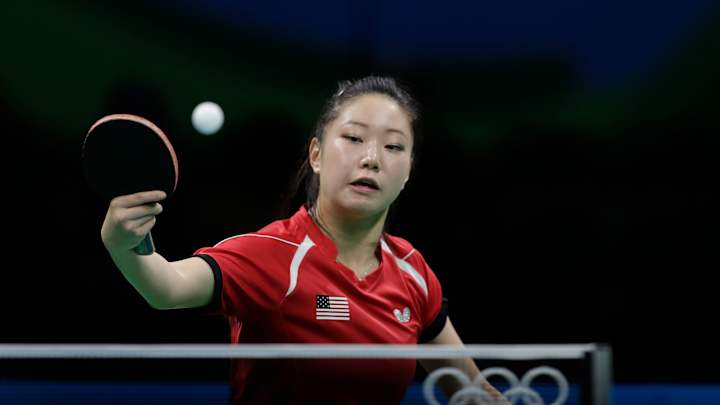In quest for world-class US table tennis, college the enemy

RIO DE JANEIRO (AP) When Lily Zhang, the American table tennis ace, decided she wanted to make her sport a priority, she took a year off from college to devote to practice, including three months playing with pros in Austria. It paid off, landing her on the Olympic team for the second time.
But her decision - leaving behind friends, family and studies at the University of California at Berkeley to put in grueling six-hour-a-day sessions for months - highlights an unfortunate truth for U.S. table tennis: In the quest to build a team of professionals to challenge powerhouse China, school is the enemy.
To succeed in a sport like table tennis that demands obsessive practice but provides little financial support, young athletes often must give up their education, at least temporarily.
Many end up eventually choosing college, even if they're good enough to make the Olympics.
''It was very hard to balance,'' Zhang, 20, who lost in the third round in singles and plays in the team event on Friday, said of her freshmen year at Berkeley. ''I found myself only practicing once every two weeks or even once a month.''
Zhang, who hunched over a PC after a recent practice session in Rio registering online for classes for her delayed sophomore year, knows that her practice time will plunge again when she returns to school later this month.
''I definitely cannot play professionally during university,'' she said. ''It would be very difficult to play six hours a day.''
And there's the dilemma.
It's natural, though often painful, for young athletes playing under-funded, less popular sports like table tennis to choose college. But it puts the Americans perpetually in the hole against China, Japan and Europe, where table tennis often enjoys government support.
''The two things in the U.S. are currently not compatible,'' Massimo Costantini, the U.S. table tennis coach, said of college and high-level table tennis.
To be a professional table tennis player, he said, ''you can't do anything else. But to do so you need support. ... What if we had the same support as other countries?''
A good example of the quandary table tennis faces in the United States can be seen with Ariel Hsing, a young player who made a run at the London Olympics, losing a hard-fought game in the third round to the eventual gold medalist from China.
But when she started at Princeton, Costantini said, ''education took over. You can't make a living from table tennis for the rest of your life. Several good players, they suddenly stop because of college. ... I understand, but it is hard. I have regrets for what might have been.''
Kanak Jha, a 16-year-old American who was the youngest male ever to qualify for table tennis in Olympic history, takes online classes and trains with professionals in Sweden.
''Table tennis is a sport where you have to play many hours every day to get better, and when you're so focused on school and table tennis it gets really tough mentally and physically,'' Jha said.
Money can be as big a problem as finding practice time.
Another young American, Yijun Feng, 19, who, like Jha, lost in the first round in Rio but will play in the team event Friday, took a year off after graduating from high school to practice six hours a day in China.
Feng, who will attend the University of Georgia after the Olympics, says he may take time off again after his freshman year to train and hopes to get an equipment sponsorship; in the meantime, he and his parents pay for everything, including expensive equipment and tours that can cost as much as $5,000.
Leaving the sport can sometimes bring as much relief as grief.
Michael Landers, a promising young table tennis talent who ultimately failed to make the 2012 Olympic team, is shown in the documentary ''Top Spin'' weeping after missing his chance for those games. Later, after enrolling at New York University, he described the intense pressure of juggling friends, family, school and table tennis.
''Everything I felt was just riding on my back. And then just to be finished with that,'' he said of his tears after the loss. ''I was really, really happy to just be done with it, even though I was crushed.''
---
Follow Foster Klug at www.twitter.com/apklug
